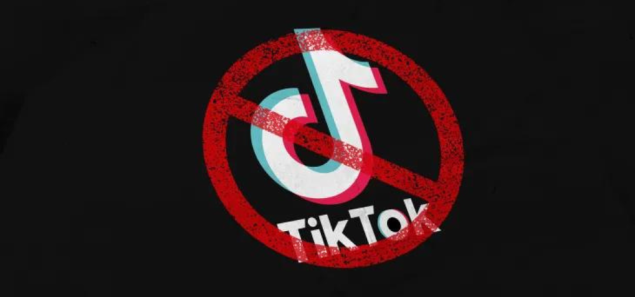Senate passed a bill that will ban TikTok if its owner, ByteDance, doesn’t sell it within a year. The bill was part of the foreign aid deal. The bill was passed by the Senate 79–18 on Tuesday, after the House passed it with a huge majority over the weekend.
To become law, President Joe Biden must sign the bill. The White House says that he plans to do that on Wednesday.
In March, the House passed a similar bill that would have banned TikTok or forced its sale with a six-month time limit. The Senate never did take up that bill, though. The Senate had to make a choice this time because the bill was linked to important foreign help to Ukraine, Israel, and Taiwan.
TikTok did not issue a comment right away. Bloomberg says that the company’s head of public affairs for the Americas, Michael Beckerman, said that the company plans to fight the move in court.
“The deal that the Republican Speaker and President Biden made is the first of its kind.” As soon as the bill is signed, we will go to court to fight it, he wrote in a memo to TikTok’s U.S. staff earlier this week.
With a 90-day stretch, the bill gives Bytedance nine months to force a sale, which is really a year to close the deal.
The House passed the bill last week. TikTok said it was “unfortunate” that the House was using “important foreign and humanitarian aid” as an excuse to rush through a ban bill that limits the “free speech rights of 170 million Americans.”
Even though TikTok is based in Singapore, the U.S. has been worried about its citizens’ data because the social media site is owned by China. The government has been told over and over again by TikTok that it does not give Chinese companies information about U.S. users.
TikTok has also tried to stress how important the site is for U.S. creators and small businesses. The company said earlier this month in an economic effect report that TikTok helped small and medium-sized businesses in the country make $14.7 billion. The study also said that the platform is used by more than 7 million businesses in the United States.
The American Civil Liberties Union (ACLU) and the Electronic Frontier Foundation (EFF), two civil rights groups, have spoken out against the ban on the app. Last month, artists also said they were worried that a possible TikTok ban would hurt their income.
Also Read: When the U.s. House Changes a Plan That Would Ban Tiktok or Force Sales
Biden joined TikTok in February, even though he had security worries about the app. He may have done this to reach young voters. On the other hand, Donald Trump, who as president tried to put restrictions on TikTok, has spoken out against the ban.
What do you say about this story? Visit Parhlo World For more.


